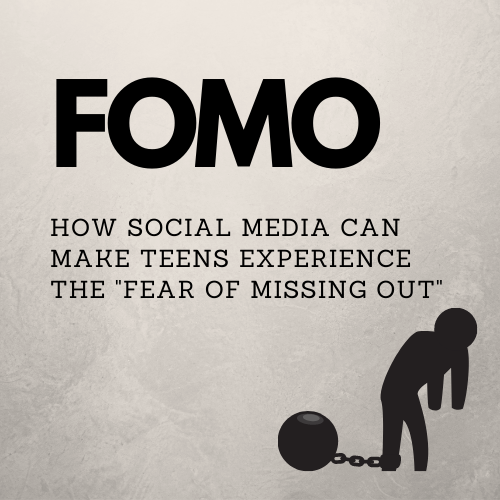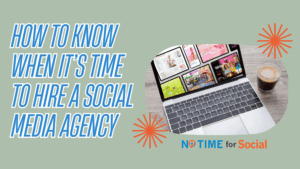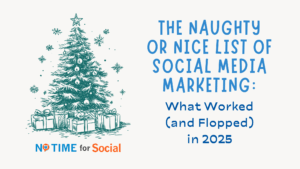Parents need to know what negative aspects of social media use their teens may be dealing with. Teens that use social media will have to navigate complicated issues and feelings brought on by what they see online. One such experience that parents need to be aware of is “FOMO” or the “fear of missing out.”
The nature of social media allows teens to frequently update their friends on everything and anything. Teens use social media to tell others what they are doing, where they are, and who they are with. Teens can see each other’s updates every time they open up a social media app. They can easily see the exciting events and items that their peers are deeming post-worthy. A teen who sees that his friends are posting about hanging out together when he wasn’t invited may feel excluded. Another teen sees an influencer post about makeup and then wants to buy some to feel like she fits in. Teens could feel more insecure and excluded when “FOMO” or the “fear of missing out” sets in.
What is “FOMO” or the “Fear of Missing Out?”
FOMO is a way to describe where peer pressure and internal insecurity cross paths. FOMO is the anxiety a person feels when they are afraid that they are missing out on opportunities that other people are having. Teens feel FOMO when they feel pressured to participate and enjoy the same things as their peers. They also feel FOMO when they feel envious of what their peers are doing. Social media may be making FOMO worse for teens since they constantly what other people are experiencing. If a teen is feeling FOMO, they may make decisions about how they spend their time differently. Teens may feel pressured to publicly display their social decisions through their posts.
How parents can talk with their teens about how social media can cause teens to feel FOMO
It is not always a harmful thing for teens to share updates with one another through social media. However, it does mean that parents need to talk with their teens about how social media affects them.
Here are some helpful questions parents can ask their teen that is feeling FOMO-
- Do your friends post about hanging out without you when you weren’t invited along?
- How does this make you feel?
- Have you tried to talk to your friends about how their actions are affecting you?
- When you see a friend on social media post about a vacation, a new car, or a fancy gift, do you feel envious or any other negative emotion?
- Do you feel jealous of famous social media influencers for posting about their extravagant lifestyles?
- Do you understand that the influencers you see on social media get paid to post about their extravagant lifestyles?
- Have you ever made a post specifically to hurt other people’s feelings by intentionally excluding them from a social event?
- Have you posted to make another person jealous?
What do parents of teens need to understand about FOMO and social media?
Parents can help their teens by encouraging them to treat both themselves and others with kindness. Parents need to teach teens that their social media feeds are not carbon copies of real life. What teens see on social media is more like a funhouse mirror at a carnival. While entertaining, a reflection in a funhouse mirror is not a true representation of reality. In the same way, social media feeds are presenting a distorted view of the lives of friends and celebrities. If seeing certain types of posts makes a teen feel insecure, jealous, or anxious, they need to remove that kind of content from their feeds.
Social media influencers curate their content to promote a specific message. Even if they do not realize it, teens are doing the same with every post they make. By having conversations about how their teens are perceiving what they see on social media, parents can help their teens keep a healthy and balanced perspective regarding social media.
If a teen’s intentions for posting are not positive, they should not be posting. Teens should not use social media to bully others or make them feel jealous.
When teens use social media responsibly and come to their parents when they are feeling negative feelings like FOMO, online communities of young people will be a more positive place for teens to interact with one another.




